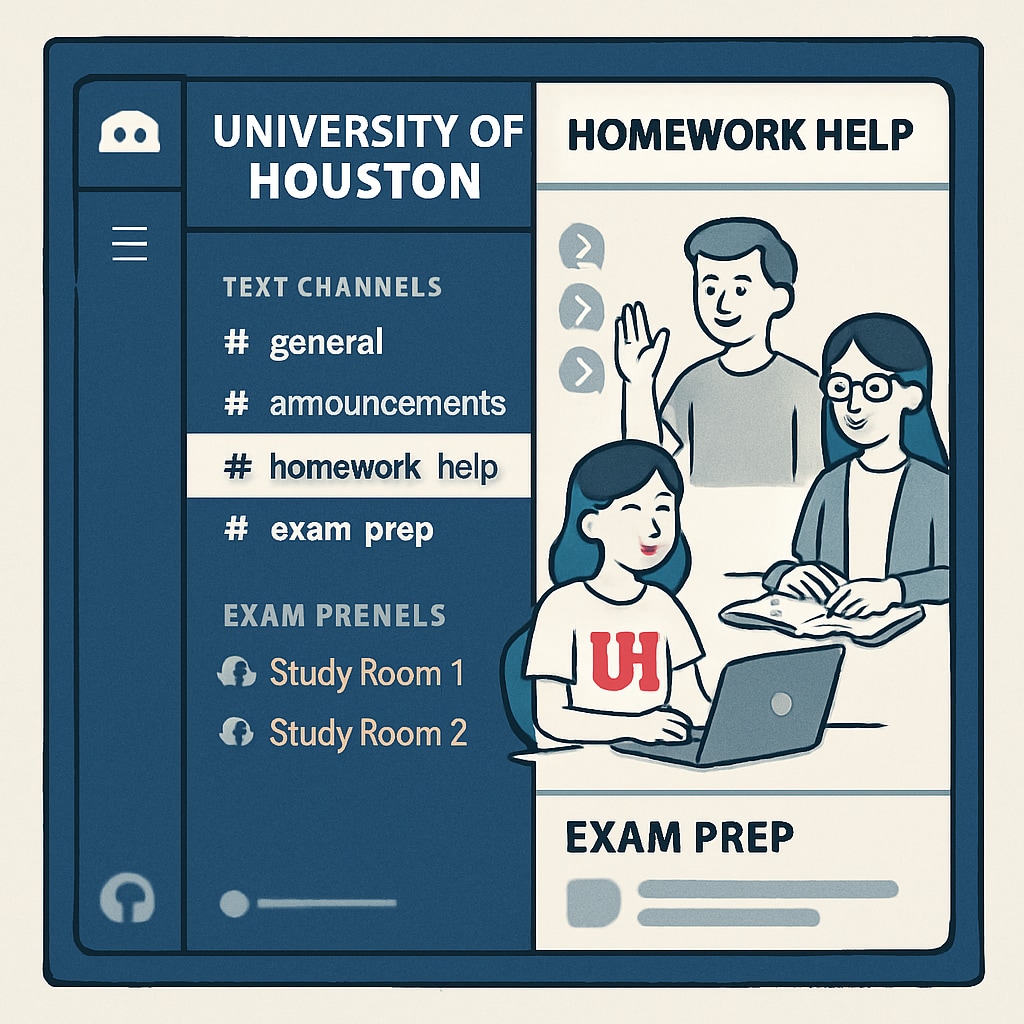Finding the right study group can greatly enhance your academic performance and social experience, especially at a diverse institution like the University of Houston. Whether you are a freshman navigating your first semester or an upperclassman looking for collaborative partners, tapping into study resources such as Discord communities and campus organizations can help you thrive. In this article, we’ll explore how to find study groups, use digital platforms like Discord, and build long-term learning partnerships at the University of Houston.
Why Study Groups Matter at the University of Houston
Study groups are more than just a way to prepare for exams—they are a platform for exchanging ideas, clarifying concepts, and staying motivated. At the University of Houston, where the student population is diverse in terms of backgrounds and academic disciplines, study groups allow you to learn from different perspectives and build a strong sense of community.
In addition, study groups help improve soft skills like communication, teamwork, and problem-solving, which are critical for both academic and professional success. For example, working collaboratively on a challenging project or discussing complex theories can simulate real-world scenarios, preparing you for life beyond graduation.

How to Find Study Groups at the University of Houston
There are several avenues to find or create a study group at the University of Houston. Here are some practical tips:
- Join Campus Organizations: Many student organizations host study sessions tailored to specific majors or courses. Check the university’s event calendar or visit the Center for Student Involvement to find groups related to your field.
- Leverage Classroom Connections: Don’t hesitate to ask classmates if they’d like to form a study group. Many students are looking for accountability partners, especially in challenging courses.
- Use Digital Platforms: Platforms like Discord are increasingly popular for organizing online study groups. Many University of Houston students create course-specific Discord servers where they share notes, discuss assignments, and even host virtual study sessions.
For a deeper dive into how Discord can be used effectively for study groups, check out resources like Discord on Wikipedia.
Using Discord to Enhance Your Study Group
Discord is a versatile platform that offers text, voice, and video communication features, making it ideal for virtual collaboration. Many University of Houston students use Discord to form study groups, especially when schedules or commuting challenges make in-person meetings difficult.
Here’s how you can get started:
- Create a Server: Set up a dedicated server for your study group. Use channels to organize topics such as “Lecture Notes,” “Homework Help,” and “Exam Prep.”
- Schedule Regular Sessions: Use Discord’s event and notification tools to plan study sessions that fit everyone’s schedule.
- Share Resources: Upload files, share links, and collaborate on shared documents directly within the platform.
For more tips on using Discord for learning, refer to this overview on Discord.

Applying Collaborative Learning to K12 Education
The collaborative learning skills fostered in university study groups can also benefit younger students in K12 education. By introducing similar methods—such as small group discussions, peer teaching, and digital collaboration tools—educators can help students develop teamwork and resilience early on.
For example, high school students preparing for standardized tests can form study groups on platforms like Discord to share strategies, review practice questions, and keep each other accountable. This not only improves academic outcomes but also builds confidence in working collaboratively.
Final Thoughts: Building Your Learning Community
Whether you’re a University of Houston student or an educator looking to implement collaborative learning in K12 settings, the principles remain the same: connection, communication, and consistency. By utilizing resources like study groups and platforms like Discord, you can create a supportive learning environment that fosters both academic success and personal growth.
Start by reaching out to classmates, joining university organizations, or exploring online communities to find your ideal study group. Remember, learning is not just about individual achievement—it’s about growing together.
Readability guidance: Keep paragraphs concise and use lists to summarize key points. Maintain a balance of active voice and include transitions for smooth reading flow.


